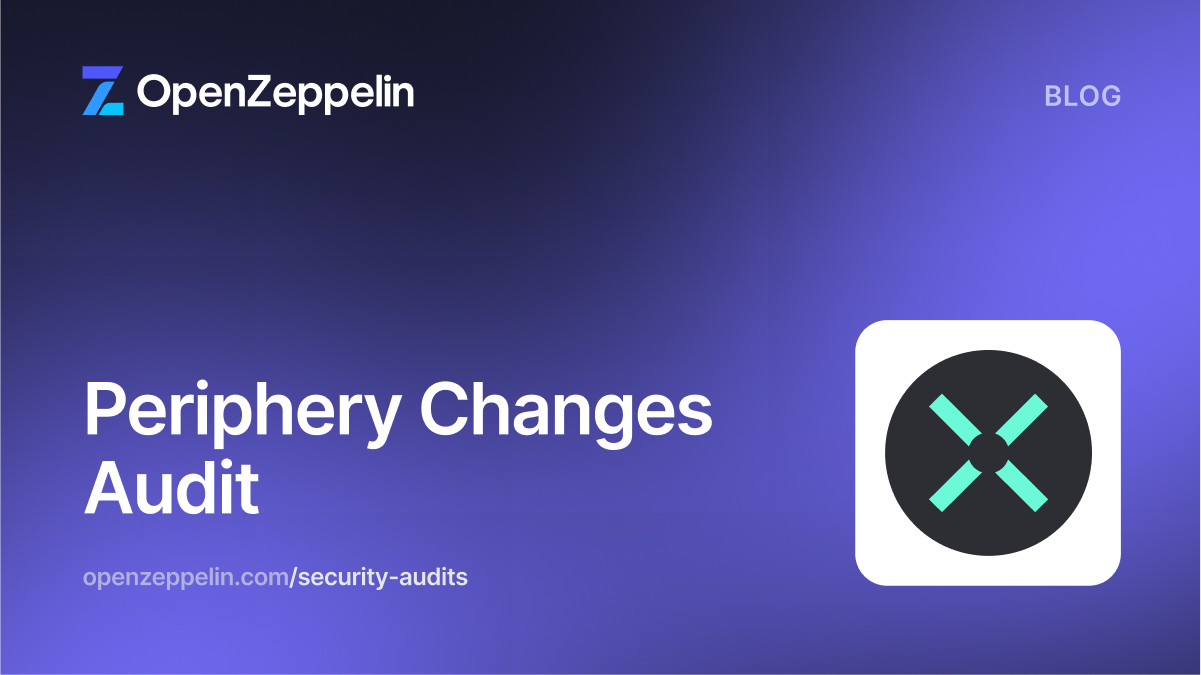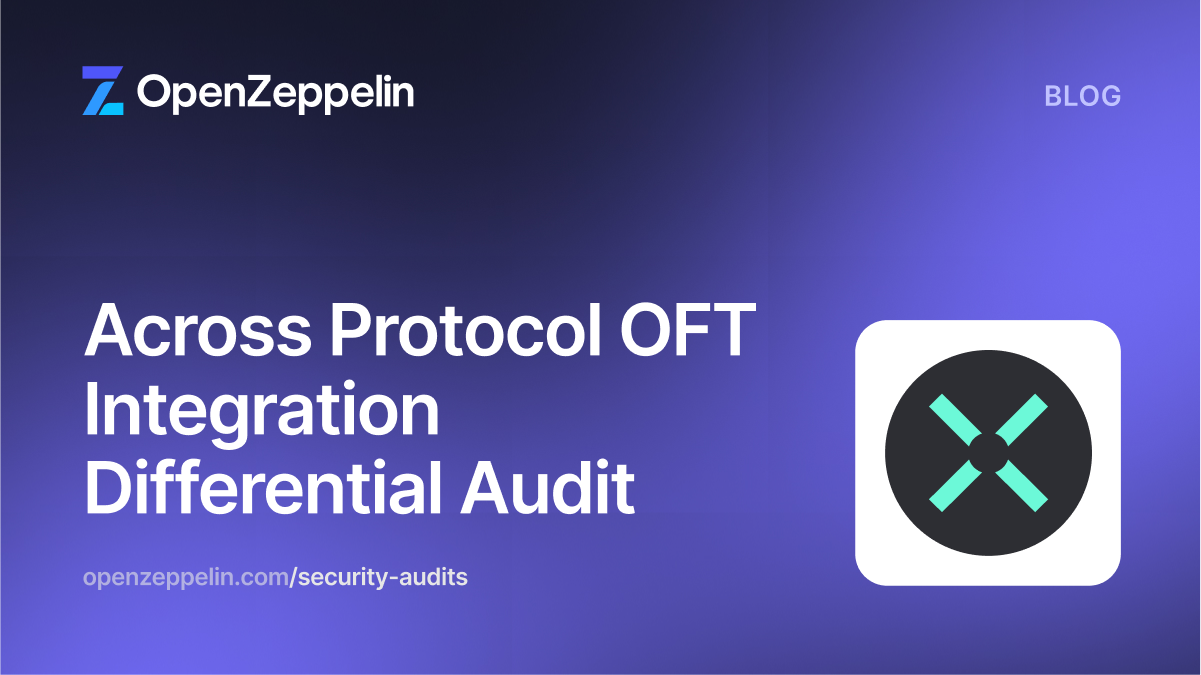Micah Zoltu asked us to review and audit the recoverable wallet smart contract code. We looked at the code and now publish our results.
The audited commit is 2207f5a7cc3b2607f7f97a769fbca7fe9235952b and the recoverable-wallet.sol contract in the recoverable-wallet/contracts/source folder was the contract in scope.
We note that as of the audit start date the project was still in development, and the testing infrastructure in particular was incomplete. We have hence refrained from assessing it and other general aspects of the project’s health. We do recommend to have at least a rich documentation and a robust testing infrastructure prior to launch.
Here are our assessment and recommendations, in order of importance.
Update: Micah applied several fixes to address the issues found below. These fixes can be found in the audit-response branch with the final commit being 916ec835d504cd3fa1b7688ada5273a24d4ae298.
Critical Severity
None.
High Severity
None.
Medium Severity
Contract does not conform to the ERC1820 specification
The ERC1820 standard defines a universal registry where addresses can register the interfaces they support. The specification requires that compliant contracts have a canImplementInterfaceForAddress(bytes32 interfaceHash, address addr) function that returns the ERC1820_ACCEPT_MAGIC constant if and only if the contract implements the interface (interfaceHash) for a given address (addr).
Importantly, EIP1820 specifies:
If [the contract] does not implement the
interfaceHashfor a given address (addr), [thecanImplementInterfaceForAddressfunction] MUST NOT returnERC1820_ACCEPT_MAGIC.
On line 12 of recoverable-wallet.sol the Erc777TokensRecipient contract implements a canImplementInterfaceForAddress function which returns the ERC1820_ACCEPT_MAGIC constant on all inputs. This would indicate to an external caller that the contract implements all interfaces for all addresses.
Consider modifying this function so that it returns ERC1820_ACCEPT_MAGIC only when interfaceHash is keccak256(abi.encodePacked(“ERC777TokensRecipient”) and addr is address(this).
Additionally, the ERC1820 standard defines the canImplementInterfaceForAddress(bytes32 interfaceHash, address addr) function with bytes32 interfaceHash as the first parameter and address addr as the second parameter. However, the implementation on line 12 of recoverable-wallet.sol has these parameters reversed. We recommend changing the order of these parameters so the canImplementInterfaceForAddress function complies with the ERC1820 specification.
Update: The canImplementInterfaceForAddress function has been modified to conform with the ERC1820 standard. Note that the comments in lines 18 and 21 are still using addr, yet the variable has been renamed to _implementer.
Race condition may result from compromised recovery address
The RecoverableWallet contract implements a recovery system whereby the owner can register a list of recovery addresses using the add_recovery_address function on line 86. Each recovery address is associated with a positive _recovery_delay_in_days, and a recovery address with a strictly lower_recovery_delay_in_days is said to have a “higher priority” than a recovery address with a strictly higher _recovery_delay_in_days. The owner is able to remove recovery addresses using the remove_recovery_address function on line 92.
At any time, a recover address may begin the recovery process by calling start_recovery (line 97 of recoverable-wallet.sol), thereby becoming the active_recovery_address. This puts the contract in the “in recovery” state, during which several of the contract’s functions cannot be called, including the remove_recovery_address function. The owner can abort the recovery process by calling the cancel_recovery function, thereby putting the contract back into the “out of recovery” state.
If a recovery address becomes compromised, the compromised address may call the start_recovery function, during which time the owner cannot remove the compromised address via the remove_recovery_address function due to the only_outside_recovery modifier. To remove the compromised address, the owner must first call the cancel_recovery function before calling remove_recovery_address(<compromised_address>).
However, once the owner has called the cancel_recovery() function, there exists a race condition during which the compromised address attempts to call start_recovery() again before the owner can call remove_recovery_address(<compromised_address>). If successful, a compromised recovery address can keep the contract in a recovery state, thereby preventing any calls to any function with the only_outside_recovery modifier — including the deploy and execute functions.
If compromised recovery addresses are within the scope of the threat model, consider adding a function with the only_owner and only_during_recovery modifiers that cancels the recovery process and removes the compromised address in a single function call.
Update: A new function (cancelRecoveryAndRemoveRecoveryAddress), has been added which allows the owner to cancel the recovery process and remove the offending recovery address in a single transaction.
Ownership transfer cancellation can be front-run
The RecoverableWallet contract implements an ownership transfer system whereby the owner may offer ownership of the Ownable contract to an address referred to as the pending_owner. This is achieved by calling the start_ownership_transfer function on line 38. Afterwards, the pending_owner may accept ownership by calling the accept_ownership function on line 50. If the current owner calls the cancel_ownership_transfer function before the pending_owner calls the accept_ownership function, then the offer is rescinded and the pending_onwer may no longer claim ownership.
After the start_ownership_transfer function has been called by the owner, the owner may wish to call the cancel_ownership_transfer to prevent ownership transfer. After the owner has broadcasted a transaction calling the cancel_ownership_transfer function — but before that transaction is mined — the pending_owner may call the accept_ownership function using a transaction with a higher gas price, thereby accepting ownership before the transaction to rescind the offer has been mined.
Whether or not this is a concern depends upon the intention of the owner when calling cancel_ownership_transfer. If the intention is to cancel the transfer of ownership to a non-responsive address, then this poses no threat. If the intention, however, is to prevent the transfer of ownership to a pending_owner that is no longer trusted, then this may pose a threat.
Update: This is intentional functionality and a comment has been added to the code to indicate this.
Recovery cancellation can be front-run
Similar to the issue “Ownership transfer cancellation can be front-run”, cancellation of the recovery process can also be front-run. After the start_recovery function has been called by a recovery address, and after the active_recovery_end_time has passed, the owner may wish to call the cancel_recovery function to prevent finalization of recovery before someone calls the finish_recovery function. After the owner has broadcasted a transaction calling the cancel_recovery function — but before that transaction is mined — anyone may call the finish_recovery function using a transaction with a higher gas price.
Whether or not this is a concern depends upon the intention of the owner when calling cancel_recovery. If the intention is to cancel the transfer of ownership to a non-responsive recovery address, then this poses no threat. If the intention, however, is to prevent the transfer of ownership to an active_recovery_address that is no longer trusted, then this may pose a threat.
Update: This is intentional functionality and a comment has been added to the code to indicate this.
Low Severity
uint256/uint16 type mismatch
There is a parameter type mismatch in the recovery_address_added event. The recovery_delay_in_days parameter in the recovery_address_added event (line 59) is of type uint256. This event is emitted on line 89 with its second parameter being passed a uint16.
Consider using uint256 rather than uint16 everywhere.
Update: The type of the recovery_delay_in_days parameter has been changed to uint16 to resolve the type mismatch.
Mixed usage of the recovery and ownership transfer systems
On line 122 the finish_recovery function sets pending_owner = active_recovery_address;. This requires the recovery address to then call accept_ownership in order to become the new owner. While this works fine, it requires two on-chain transactions and may result in an ownership_transfer_finished event being emitted without a corresponding ownership_transfer_started event preceding it.
If this is undesirable behavior, consider setting the owner instead of the pending_owner on line 122, and then modifying the recovery_finished event accordingly. This would require one fewer on-chain transaction to change owners via the recovery process, and it would keep the recovery process and the ownership transfer system independent of one another.
Update: The finish_recovery function (since renamed to finishRecovery) has been modified to directly set the new owner and emit the correct sequence of events.
Obscure error message provided upon contract creation failure
The deploy function attempts to create a contract based on user-provided parameters and checks whether contract creation was successful by checking whether the output of create2 is a non-zero address. If the wallet contract doesn’t have enough balance to fund the newly created contract with the amount specified in the _value parameter, the transaction will revert with the obscure “Contract creation failed.” error message issued by the non-zero address check.
Consider splitting this into two checks. First, we suggest adding a require statement to the beginning of the deploy function that checks whether the RecoverableWallet contract has a balance of at least _value ETH, and returns a meaningful error message otherwise. Second, rather than checking that the output of create2 is a non-zero address, we recommend the more stringent requirement that code actually exists at the address returned by the call to create2 using extcodesize.
Update: The deploy function has been modified to output more detailed messages in the event of a failed contract deployment. The extcodesize option was not used because “a valid create2 call may not result in any code actually being deployed at the destination address (e.g., self-destruct in constructor or deployment code returning an empty bytecode array)”.
Unnecessary setting of the active_recovery_end_time variable
The variable active_recovery_end_time is consumed only in the finish_recovery function (on line 120), which has the only_during_recovery modifier. The only_during_recovery modifier passes only when active_recovery_address != address(0). This occurs only after start_recovery has been called and before either cancel_recovery or finish_recovery has been called.
Since start_recovery sets active_recovery_end_time, there is no need to set active_recovery_end_time = uint256(-1) on line 67. Consider leaving the active_recovery_end_time variable uninitialized on line 67.
For the same reason, it is unnecessary to set active_recovery_end_time = uint256(-1); in the reset_recovery function on line 146. Consider removing the code at line 146.
Update: No changes have been made here. Setting active_recovery_end_time to uint256(-1) is intended to make code auditing and strict invariant checks easier.
Unnecessary call to reset_recovery() in constructor
Whether or not the recommendations from the issue “Unnecessary setting of the active_recovery_end_time variable” are taken into consideration, the call to reset_recovery on line 80 is unnecessary since active_recovery_address and active_recovery_end_time will be set correctly when start_recovery is called. Consider removing this function call.
Update: The call to reset_recovery has been removed from the constructor.
Duplicate code in the finish_recovery() function
Line 119 duplicates the code in the only_during_recovery modifier, which is already being applied to the finish_recovery function. Consider removing this superfluous line.
Update: The duplicate code has been removed from the finish_recovery function.
False comment in the start_recovery() function
The comment on line 103 states:
NOTE: the recovery address cannot change during recovery, so we can rely on this being != 0
The second half of the statement — that “we can rely on this being != 0” is true. However the first part of the statement — that “the recovery address cannot change during recovery” is false. The function that contains the comment (the start_recovery function) is the means by which a recovery address can change during recovery. In particular, a recovery address can change during recovery when a recovery address with a higher priority than the current active_recovery_address calls the start_recovery function.
Update: The comment has be updated to correctly reflect contract behavior.
Ownership transfer can be started while another is underway
The start_ownership_transfer function (line 38) in the Ownable contract can be called when the pending_owner is NOT address(0) (that is, when an ownership transfer is already underway). This can result in two or more ownership_transfer_started events being emitted back-to-back, with no ownership_transfer_cancelled or ownership_transfer_finished events emitted in between.
If this is not intended functionality, consider adding a require(pending_owner == address(0)) to the start_ownership_transfer function to prevent this.
Update: The start_ownership_transfer function (since renamed to startOwnershipTransfer) has been modified to first call the cancelOwnershipTransfer function before beginning a new ownership transfer. This ensures that the correct sequence of events is emitted.
Ownership transfer can be cancelled before one is underway
The cancel_ownership_transfer function (line 44) in the Ownable contract can be called when the pending_owner is address(0) (that is, when an ownership transfer is not already underway). This can result in an ownership_transfer_cancelled event being emitted without a corresponding ownership_transfer_started event having been emitted.
If this is not intended functionality, consider adding a require(pending_owner != address(0)) to the cancel_ownership_transfer function to prevent this.
Update: A require statement has been included that prevents the function from being called when no ownership transfer is underway.
Overloaded functionality of the start_recovery() function
The start_recovery function provides two functionalities. One is to allow a recovery address to initiate the recovery process when no recovery is underway. The other is to allow a recovery address with higher priority to usurp the current active_recovery_address when a recovery is already underway. These differing intentions both leverage the same function and both emit the same events.
Consider disentangling these two functionalities by breaking the existing start_recovery function into two separate functions: a startRecovery function with the only_outside_recovery modifier that provides the first functionality, and a usurpRecovery function with the only_during_recovery modifier that provides the second functionality.
Update: The start_recovery function is still being used to both begin a new recovery and usurp an existing one, but it has been modified so that a RecoveryCancelled event is emitted when usurping. This ensures that the correct events are emitted in the order.
Notes & Additional Information
- The
recovery_cancelledevent (line 62) accepts no parameters. This may makerecovery_cancelledevents harder to track or interpret. Consider adding a parameter to this event.
Update: A parameter has been added to this event. - The
start_ownership_transferfunction can be called with the currentownerpassed as the_pending_owner. Similarly, the currentownercan be added as a recovery address and so also may become thepending_ownerby way of completing the recovery process. If this is undesirable behavior, consider adding require statements in thestart_ownership_transferandstart_recoveryfunctions to prevent this.
Update: This is intended behavior. - For all variables that store time values, consider changing their variable names to include the units of time they encode. For example, consider naming
_proposed_recovery_delayto_proposedRecoveryDelayDays. Additionally, to make the code less error-prone during future changes, consider using only seconds throughout the code and using days only in the function interface.
Update: Variables in units of days had their names changed to reflect this, butactiveRecoveryEndTimeis in units of seconds and its name still does not reflect it. - On line 3 and line 9, consider renaming
Erc1820RegistrytoERC1820Registry. - Following the Solidity Style Guide can improve code readability. For example, consider naming events using the CapWords style, naming functions and modifiers with the mixedCase style, keeping to a maximum line length of 79 (or 99) characters, etc.
Update: Several changes were made to bring the code closer inline with the Solidity style guide. - The code
active_recovery_address != address(0)is used in several places. Consider moving it to an internal view function,_inRecovery(), and referencing it on line 70, line 75, line 101, and line 119. If applying the suggestion from the issue “Duplicate code in the finish_recovery() function” and also splitting the currentstart_recoveryfunction into two functions, then this recommendation will not provide any benefit. - To improve readability/understandability, consider adding NatSpec documentation throughout the code.
Update: NatSpec documentation was added throughout the code. - Consider adding a comment above the
existsfunction in theRecoverableWalletFactorycontract to explain its purpose.
Update: A comment was added above theexistsfunction explaining its purpose. - Two or more owners of recovery addresses with the same priority may find themselves in a race to be the first to call
start_recovery.
Update: This is intended functionality. - We observed that it is not easy for the owner to unilaterally relinquish ownership of the wallet. The owner may offer ownership to another address, but that other address must actively accept the offer in order for ownership to transfer. It is possible, however, for the owner to provably relinquish control of the wallet by (1) failing to add any recovery addresses and (2) transferring ownership to a contract that calls
accept_ownership()but provides no other functionality.
Update: This is intended functionality. - The function
add_recovery_addresswill acceptaddress(0)as a_new_recovery_address. This can result inrecovery_delays[address(0)] > 0and arecovery_address_addedevent being emitted withaddress(0). This is benign, but one may consider adding arequirestatement toadd_recovery_addressto prevent this.
Update: A require statement has been added to prevent passing address(0) as the_new_recovery_address.
Conclusion
No critical or high severity issues were found. Some changes were proposed to follow best practices, reduce the potential attack surface, and comply with the ERC1820 specification.
Note that as of the date of publishing, the above review reflects the current understanding of known security patterns as they relate to the audited contracts. The above should not be construed as investment advice. For general information about smart contract security, check out our thoughts here.


